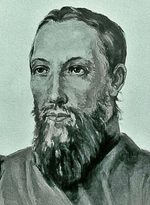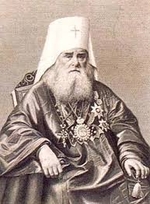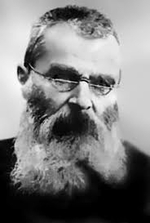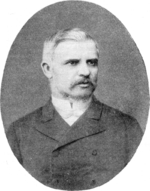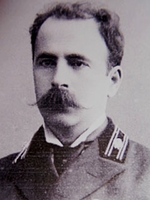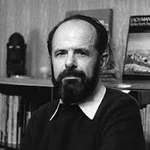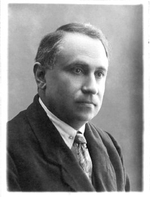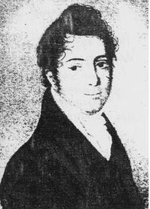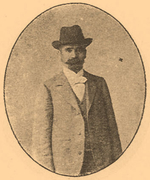Articles
Hyacinth (Bichurin Nikita Yakovlevich) (1777–1853)
Hyacinth (Bichurin Nikita Yakovlevich) (1777–1853) – аrchimandrite, the founder of Sinology in Russia.
He was born in the village of Akuliovo in the family of a priest; in 1787–1799, he studied at the Kazan’ Seminary, and at the Kazan’ Spiritual Academy; in 1800, he became monk, and in 1802 – Archimandrite of the Ascention Monastery in Irkutsk, Rector of the Irkutsk Spiritual Academy, member of the Consistory. In 1806, he lost his positions and was sent to exile to Tobolsk, where he shaped his interest to studying peoples of China and Siberia. In 1807-1821, he lived in Bejing, where re served the Head of the Russian Ecclesiastic Mission.
Read More
Innocence (Veniaminov-Popov) (1797-1879)
Innocence (Veniaminov-Popov) (1797-1879) – Metropolitan of Moscow. Missionary, translator of the Bible into languages of peoples of the North, ethnographer, geographer, linguist, researcher of traditional culture of peoples of the North.
He graduated with honours from the Irkutsk Spiritual Seminary; there he got the surname Veneaminov to his father’s one (1814). He taught at the parish school. In 1823, he was appointed a missionary, and in 1824 with his family arrived at the island of Unalashka (Aleutian Islands); later, he was transferred to Sitha. He studied languages of the indigenous peoples of Alaska, as well as their traditional culture, and religious beliefs. Together with his assistants, he was engaged in translating liturgical texts into the languages of peoples of the North, compiled ethnographic and geographical descriptions of Alaska and the islands of Unalashkinsky Bay.
Read More
Ionov Vsevolod (1851—1922)
Ionov Vsevolod (1851—1922) – ethnographer and folklorist; specialist in Turkish, Yakutian studies, revolutionary ‘Narodnik’.
He was born in Astrakhan. After the gymnasium at Tsaritsyno, he entered the St. Petersburg Technological Institute, but in 1875, he was fired out for the political propaganda. In 1876, he was arrested; in 1877, he was sentenced to five years of forced labour for the revolutionary activity; I. spent them in the Novobelgorodsky Central Prison and later at the Nerchinsl Katorga (r. Kara). In 1883, he was transferred to the settlement in the Bayagantay Ukus in Yakutia, where he lived for six years, then he was sent to the Boturuss Ulus, from where in 1899, he went to Yakuts, on the permission of authorities.
Read More
Jagić Ignatius (Vatroslav) (1838‒1923)
Jagić Ignatius (Vatroslav) (1838‒1923) – philologist, specialist in Slavic studies, linguist, paleographer, and archeographer.
He studied at the Philosophical Faculty of the University of Wien, taught at the Zagreb Gymnasium. In 1866, he was elected for Members of the South-Slavic Academy of Sciences and Arts. Academician of the St. Petersburg Ac. of Sc. in the Department of Russian Language and Literature (1869). He made lectures in comparative grammar of Indo-European languages and Sanskrit at the Novorossiisk University (1872-1874), in Slavic philology at the Berlin University (1874-1880), in Church Slavic and Russian languages at the St. Petersburg University (1880-1886) – also he made lectures ate the Higher Female Courses and at the Archeological Institute. Professor of the University of Wien (1886-1908).
One of the greatest experts in the field of Slavic linguistics of the second half of the nineteenth and early twentieth centuries.
Read More
Juze Panteleymon (1870–1942)
Juze Panteleymon (1870–1942) – born Bandali ibn Saliba al-Jauzi.
He was born in an Orthodox Syro-Arabic family in Jerusalem. The initial education he got in two Greek monasteries (in Lebanon and Palestine). In 1880-2, he studied at the Nazareth Seminary opened by the Imperial Orthodox Palestinian Society; for the excellent results he was sent to Russian, to the Vifanskaya Seminary (1889-1892), then in the Moscow (1892-1895) and Kazan’ (1895-1896) Spiritual Academies. An important role in his following destiny was played by Orientalist and Missionary, teacher of the Kazan’ Spiritual Academy M. A. Mashanov. He recommended J. for the Chair of Arabic Language, History and Criticism of Islam. In 1896, J. started to teach Arabic language at the Kazan’ Spiritual Academy; since 1899 – French language, as well.
Read More
Kabo Vladimir (1925–2009)
Kabo Vladimir (1925–2009) – ethnographer, specialist in primordial culture and religion.
After graduating from school in 1941, he entered the Historical Faculty of the Moscow State Pedagogical Institute named after V.I. Lenin. Until 1943, he was in evacuation. In 1943-1945, after graduating from the Artillery School in Tomsk (1944), he went to the front, participating in the battle for Berlin; awarded with the Order of the Red Star. In 1945-1949, he taught at the Faculty of History of the Moscow State University, at the Department of the History of the U.S.S.R.
In the autumn 1949, he was arrested and charged with creating an anti-Soviet organization. By decision of the Special Meeting at the MGB, he was sentenced to 10 years in labor camp.
Read More
Kagarov Eugeny (1882–1942)
Kagarov Eugeny (1882–1942) – historian of Classic culture, philologist, ethnographer, historian of religion.
He graduated from the Classical Department of the Novorossiisky University in Odessa in 1906. After it he was invited to stay at the same university and to prepare himself for the Professor position. In 1909-1911, he was in educative trip in Germany, Italy (Rome), and Greece. In 1911-1912, he was Ass. Docent of the Novorossiisky University; Ass. Professor – in 1914-1920, Full Professor – in 1920-1925 at the Kharkov University. In 1913, he defended his Master thesis ‘The Cult of Fetishes, Plants, and Animals in Ancient Greece’ at the Moscow University (it was published in 1914).
Read More
Kaisarov Andrey (1782–1813)
Kaisarov Andrey (1782–1813) – philologist, poet, publicist.
He studied at the Moscow Noble Pension, then in Gottingen – at A. L. Schletzer, traveled much collecting materials for studying Russian antiquities. He was interested in natural sciences and spent several years in Edinburg, where he got Doctor degree in Medicine at the university, but he did not practice medicine. In 1801, he became a member of the Friends’ Literary Society, founded by A. I. Turgenev; its members were: the Turgenev brothers, Zhukovsky, Merzlyakov, Voeikov, etc. In the program of that group, united with the desire to create national literature, was a mixture of West European traditions with genuine Russian elements; they studied the past of Russian culture.
Read More
Kandidov Boris (1902–1953)
Kandidov Boris (1902–1953) – Soviet publicist, writer, propagandist. He was one of the founders of the Central Antireligious Museum in Moscow, in the Passion Monastery (1929).
He was historian of Orthodoxy; in his works, mainly in publicist ones, he used Marxist literature and Lenin’s compositions about religion. He declared that Church was closely connected with autocracy, interpreted religion as an important tool of authorities which distracted attention of working people from their real needs and from their struggle for their rights and freedom. Some of his texts on the position of Russian Church during the WWI and Revolution are of certain interest
Read More
Kantorovich Yakov (1859–1925)
Kantorovich Yakov (1859–1925) – lawyer, legal historian.
In 1879, he finished a gymnasium in Vilno, and in 1886, he graduated from the Legal Faculty of the St. Petersburg University. In the end of 1880-s, he entered the advocate service. In 1886-1905, he worked as Assistant of County Attorneys of the St. Petersburg Court Chamber. Since mid-1890-s, he actively wrote various texts. He published some research works on the history of law on his own account; in the early 1900-s, he founded his own publishing house and worked as Chief Editor of the magazines ‘Sudebnoe obozrenie’, ‘Vestnik senatskoy praktiki’, ‘Vestnir zakonodatel’stva’ on jurisprudence. In 1905-1917, he was County Attorney of the St. Petersburg Court Chamber and Juror at the St. Petersburg Commercial Court.
Read More
Showing 91-100 of 351 items.

